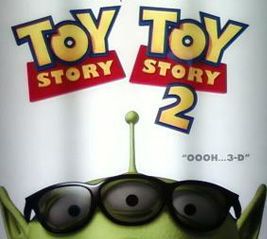Superhot: Mind Control Delete’s Fake Reinstall & Ending Explained

Most of the discussion surrounding Superhot: Mind Control Delete’s ending focuses on the real-time simulated reinstall that also serves as the game’s end credits, currently clocking in at 2.5 hours. Beyond questioning whether the requirement for players to leave their consoles or PCs idle for such a long time was a wise choice by the developer, there is a lot to unpack with the ending of Superhot: Mind Control Delete itself, and its themes and metacommentary on gaming and consumerism. Superhot MCD exchanged the hand-crafted challenges of the original Superhot for a procedurally generated roguelike format, but it also shifted from a sinister mystery story into a more direct dialogue with the player.
The first Superhot game has a distinct narrative, albeit a cryptic one, that casts the player as a gamer given access to an underground game file, superhot.exe, which leads them down a path of obsession. The System within the fictional narrative initially appears to push the character away, but ultimately invites them to become one with Superhot and abandon their physical body. Superhot shared story elements with David Cronenberg’s film Videodrome, a movie about a man whose compulsion for a purportedly pirated TV signal leads to a similar path of obsession and violence. Superhot uses the plot device of an in-fiction game played with a VR rig instead of Videodrome’s images on a cathode ray tube, but both involve disturbing conspiracies surrounding violent media blurring the lines of reality and fiction, leading to both real-life violence and the protagonist’s ultimate physical self-destruction.
Mind Control Delete could be seen as an advancement of the story of the mind-altering game within a game of Superhot, but the bulk of it indicates a more direct communication with the actual player, rather than the in-fiction character. It initially follows similar beats, with levels played like prior Superhot titles, and tells the player they have unequivocally succeeded: They have “beat the game,” they are “perfect,” their “parents are very proud” of them.
Superhot: MCD Is About Obtaining Power & Giving It Up

Pushing further on, the game suggests they want more; more levels, more power, more challenges. The player is given the ability to take more than one hit before dying and other in-fiction hacks, such as a charge attack, a katana they can summon back to their hand like a Jedi Force-user, and the return of the body swapping ability from the later stages of the original Superhot.
To complete the game, the player must first acquire every core power in Superhot: MCD, and then give them up, one by one. After giving up every hack they have worked to obtain, one of the final stages requires the players to give up the game’s basic mechanics. They sacrifice the ability to shoot, to punch, to move, even the ability to turn their head, until the player is truly helpless. At this point the “give up” button causes all enemies to explode, as if by casting off all greed and attachment to power and worldly things, the player has attained ultimate transcendence. The game reframes victory, not as becoming the best, but by having everything and willingly giving it up. Superhot MCD states that there is nothing more; “no more achievements, no more lore, no more secrets.”
Players Lose It All In Superhot: MCD To Beat The Game

Following this, the player can roam a sea of visual glitches, occasionally encountering bizarre Easter eggs such as parodies of Atari-era games. This is the victory the game promised, a depiction of a free-floating consciousness that has cast off greed and violence. To see the final credits, players must reject that lesson, and locate the option to reinstall superhot.exe, despite the assurances that giving the game up was the ultimate triumph.
The 2.5 hour simulated reinstall time could be seen as a punishment of sorts, as the player has failed to learn the lesson and recognize when enough is enough. It also allows time to reflect on the themes of Superhot MCD. Like Videodrome, it is a commentary on violence and addiction that it itself inherently violent, but for the first time in the series, Superhot: Mind Control Delete speaks directly to the consumer, instead of through the narrative conceit of an in-fiction character.
About The Author

















